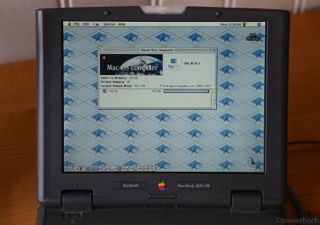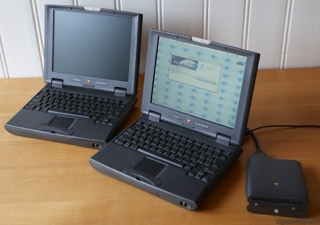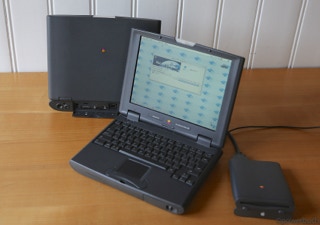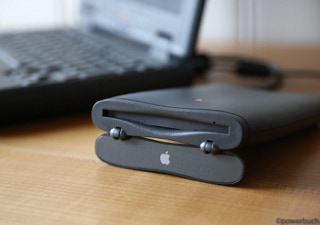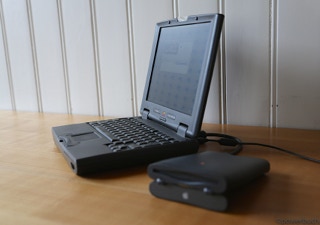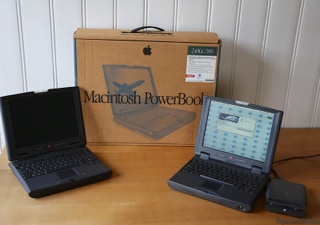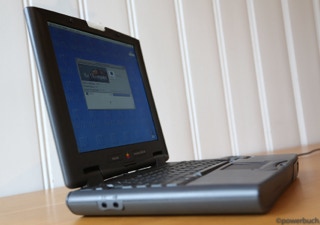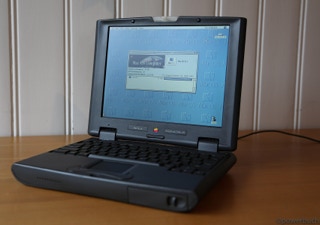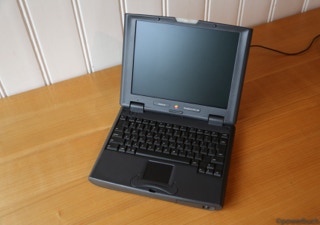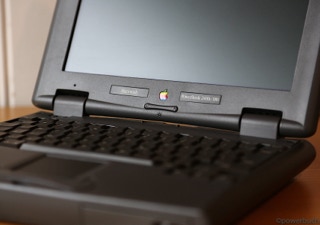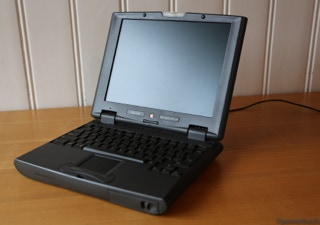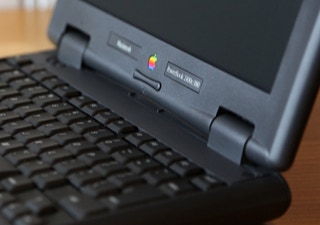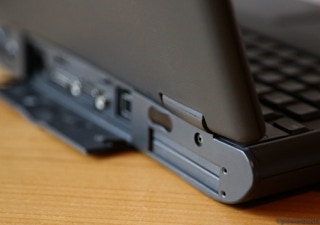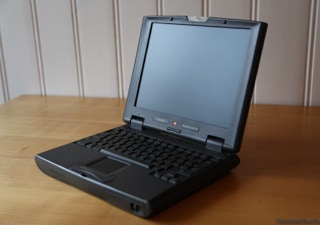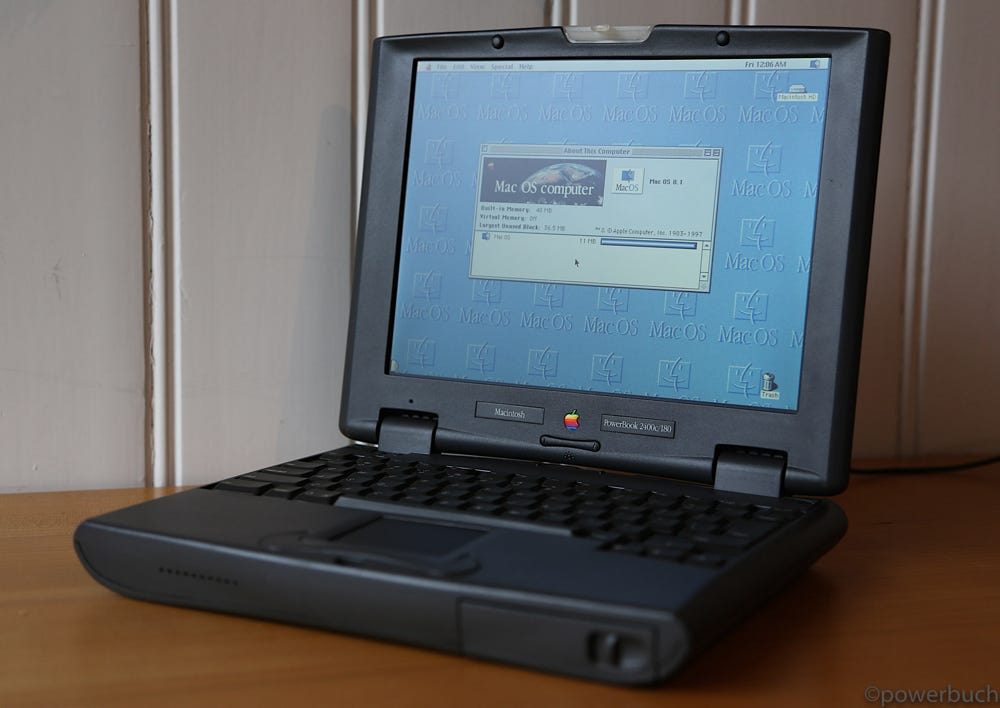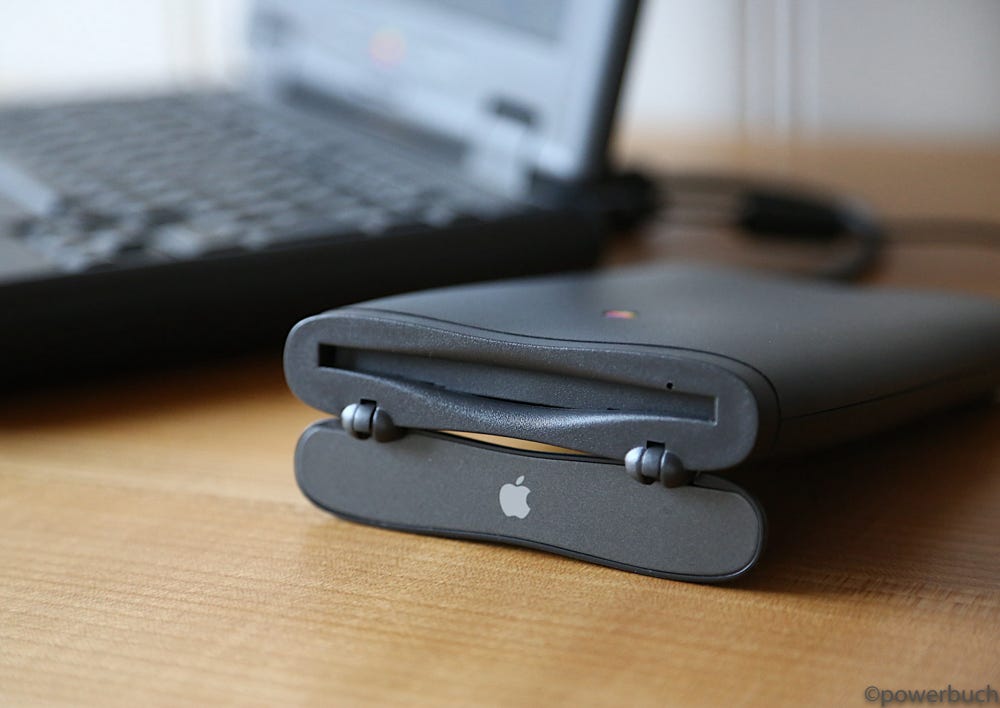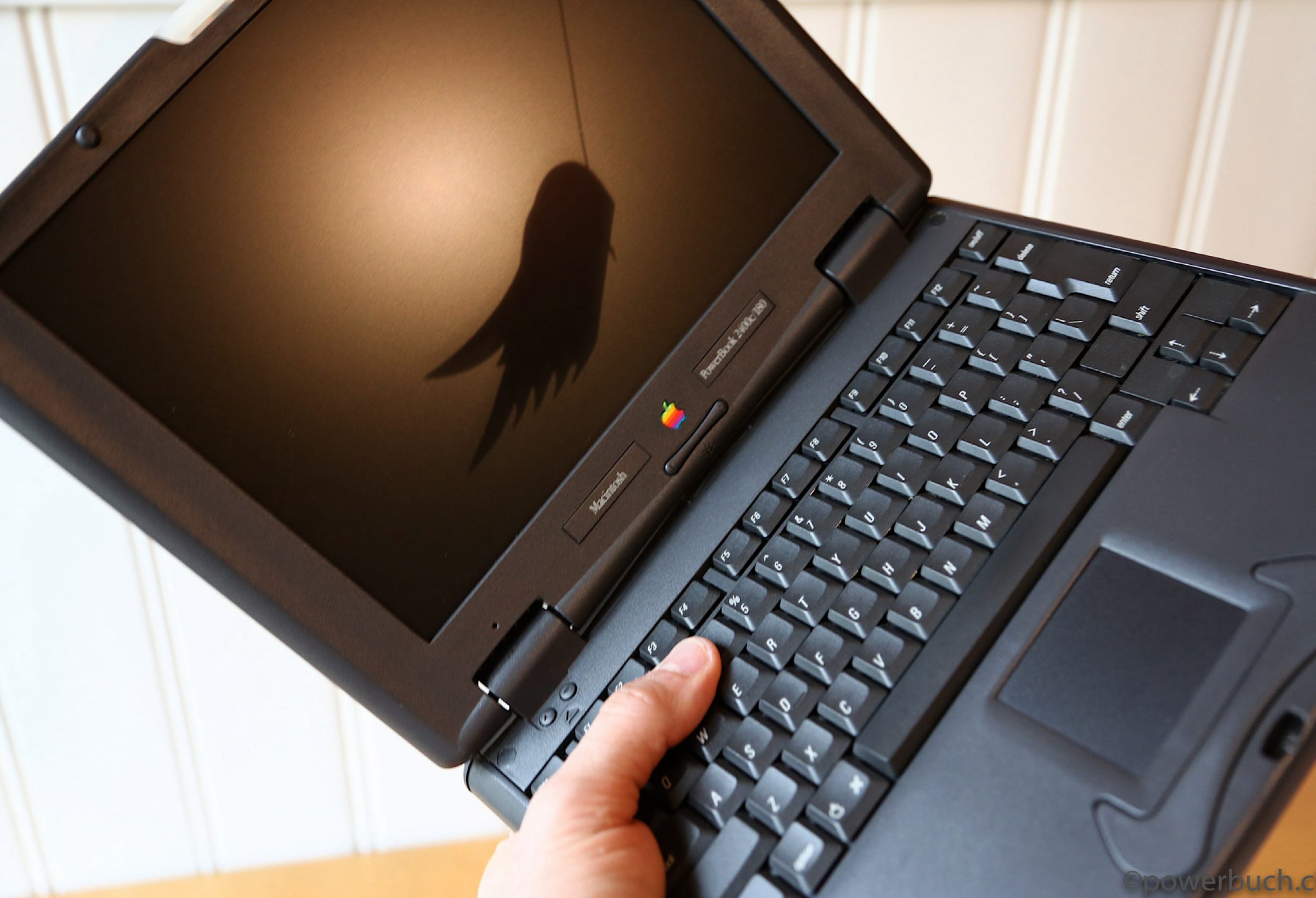powerbook 2400c
The powerbook 2400c was a subnotebook weighing less than 2.0 kg. Manufacturing was contracted to IBM. In a return to the powerbook 100 form factor, it was a late replacement for the powerbook duo 2300c, which had been the last of the subnotebook powerbook duo series. The 2400c was discontinued in march 1998, with no immediate replacement — the model that followed it was the much larger powerbook G3 series (known as „wallstreet“/„mainstreet"). However, in japan a 2400c with a 240 mhz cpu (codenamed „mighty cat") was offered shortly after the original model's discontinuation, until the end of the year.
The 2400c used the same ppc processor as the preceding duo 2300c, but at a much higher cpu clock — 180 instead of 100 mhz. However, the 2400 was unable to utilize the duodock like the 2300c was, making the lack of an internal removable drive much more noticeable.
Like the powerbook 100 and duo series before it, it was sold with an external floppy drive. Apple did not offer a cd-rom drive for it which was otherwise standard for all other powerbooks. THe 2400c came with two pcmcia card slots. The 2400 is built around a 10.4 in (26 cm) active matrix color lcd screen, making the computer very compact indeed. Apple's current offering in this category is the macbook air. Due to its processor being located on a detachable daughter card, the PowerBook 2400c saw a small number of ppc G3 processor cards created for it. Companies such as interware, vimage, and newer technologies offered processor upgrades which would swap out the 603e for a G3 ranging from 240 MHz to 400 MHz.






